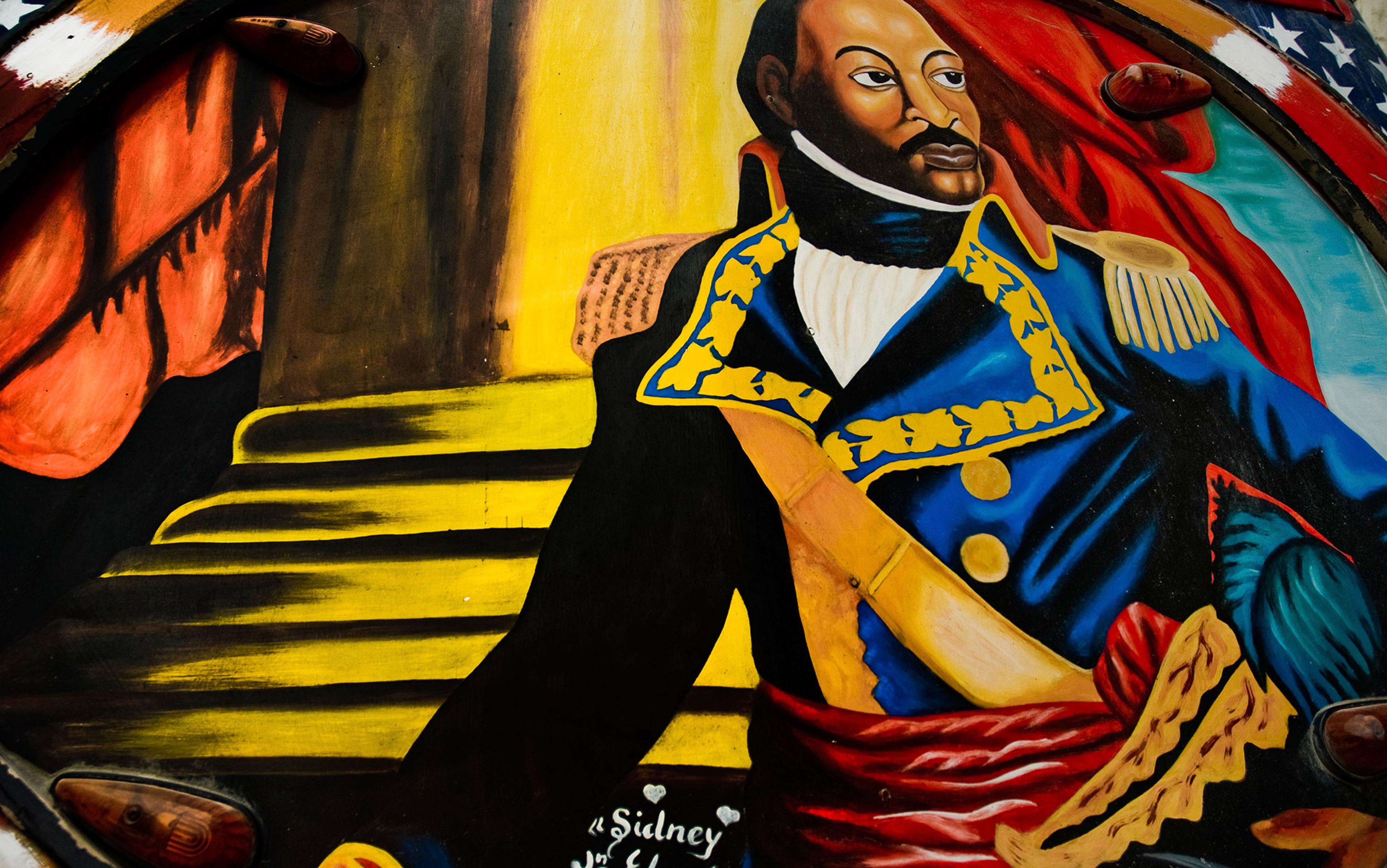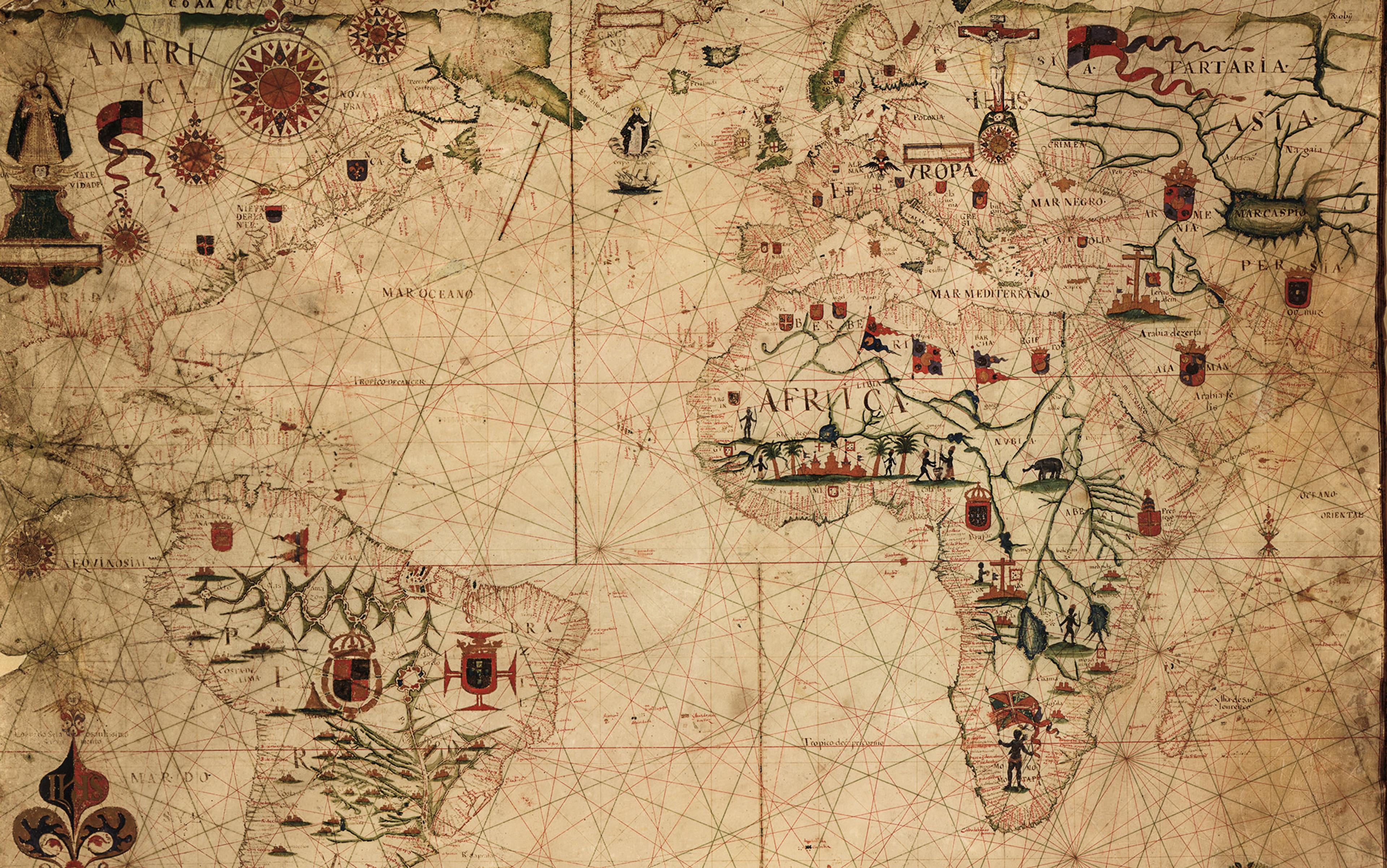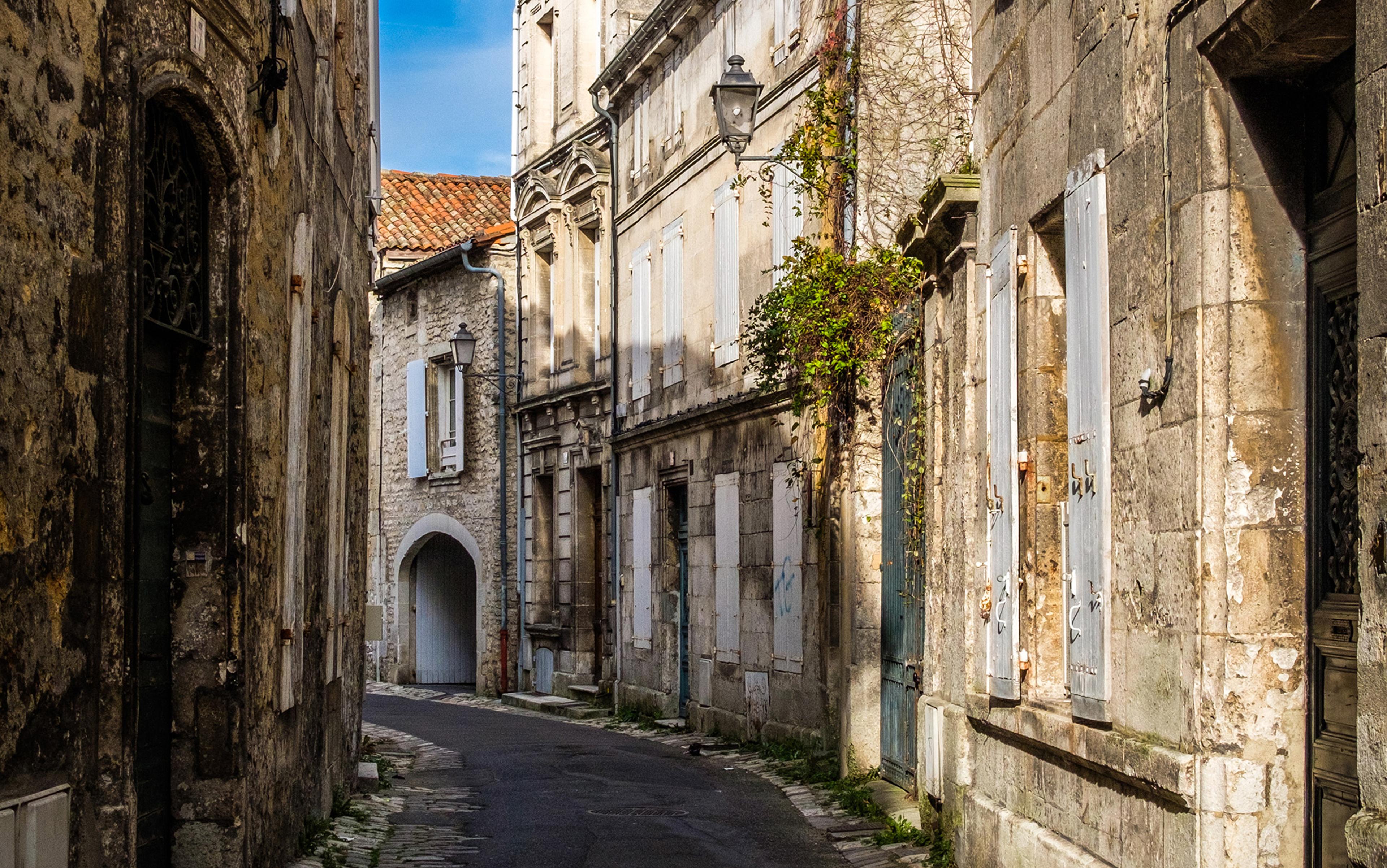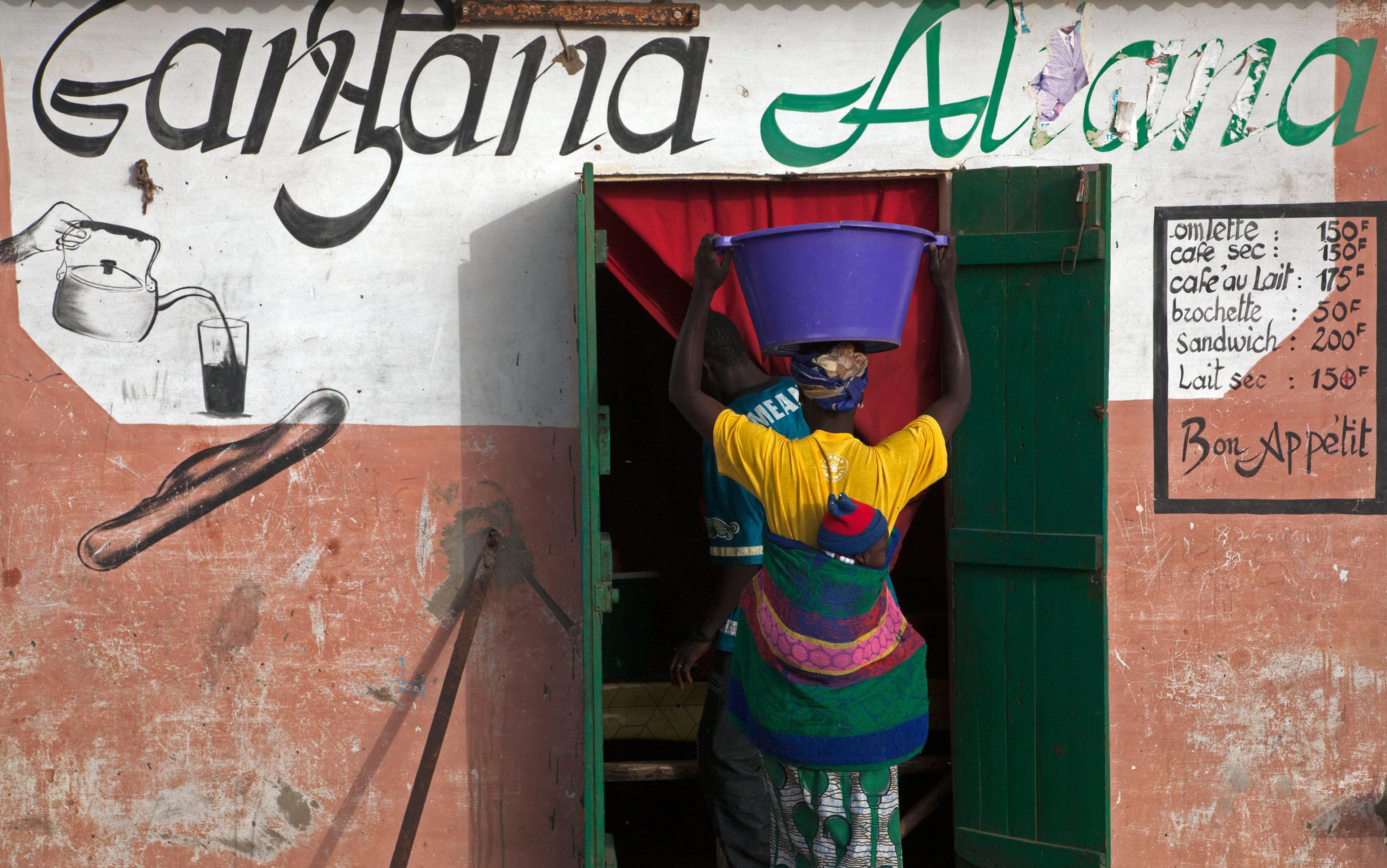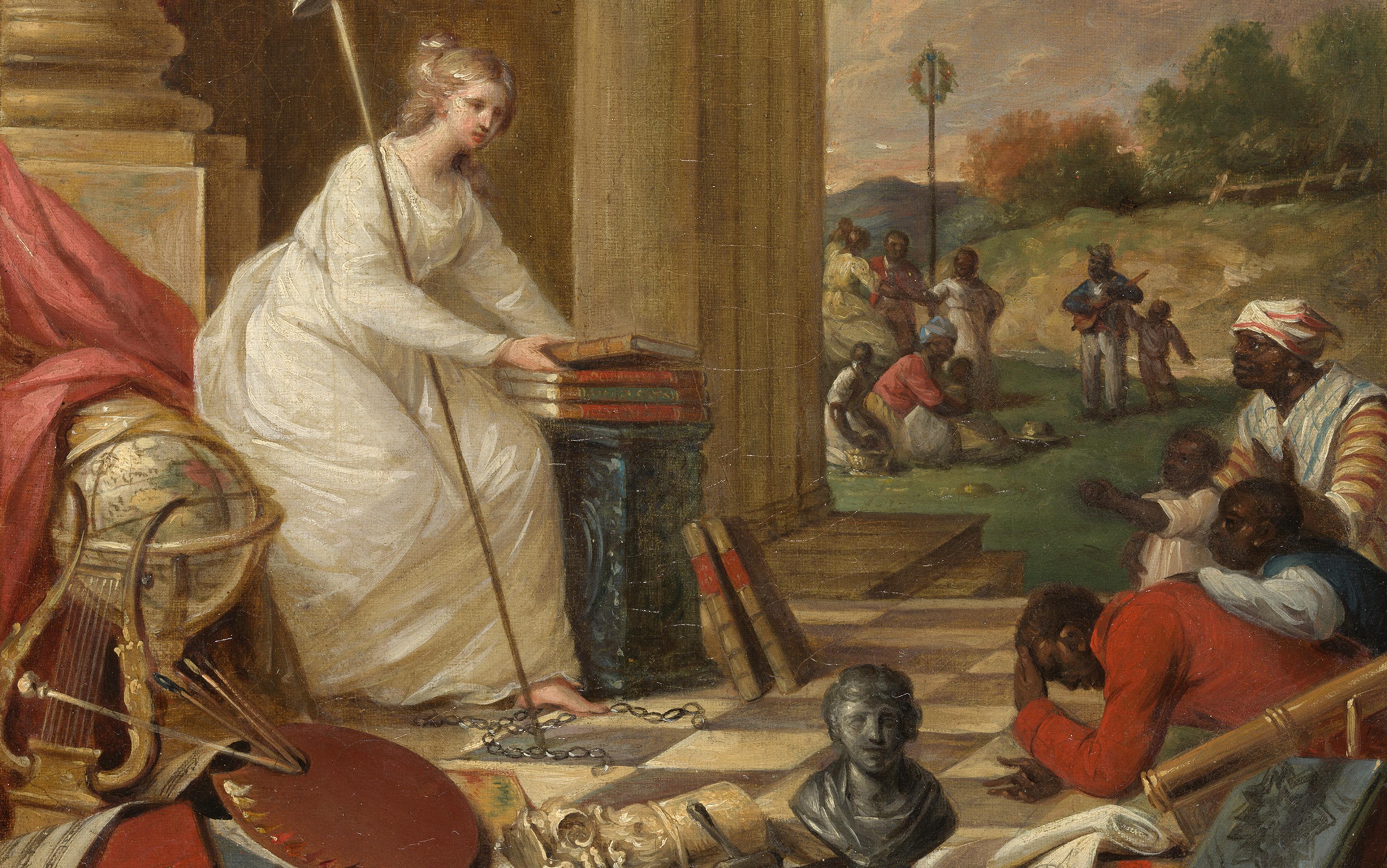Here is the challenge: to write a history of modern political thought and culture that can simultaneously – and equally – embody and communicate the perspectives of those who arrived in Virginia in the hold of the slave ship São João Bautista, of Thomas Jefferson and Sally Hemings, of Jean-Jacques Dessalines and Napoleon Bonaparte, of Andrew Jackson and Harriet Tubman. While such a project might seem quixotic, we have to try. That is the political history that we’ll need in order to construct a future politics that moves beyond the legacies of racial slavery, rather than perpetually dwelling with them. The field of ‘Atlantic History’, which has expanded dramatically in the past decades, is the thing that will enable us to do it.
That the United States was born of a history of conquest and settlement that brought people from Europe and Africa across the Atlantic is, of course, an unavoidable part of the nation’s history. More broadly, this is the story of all the Americas, though the particular ways in which European, African and Native American peoples became intertwined in the process varies greatly from place to place. The questions posed by Atlantic History are about how to tell that story. Who do we place at the centre of this history? What categories of analysis should we use, and what social, economic and institutional structures should we focus on?
It makes good sense that a body of water has become the basis for a questioning of some of our broadest and most cherished historical narratives. Until the invention of the railroad, water was the most important vehicle for movement – of people, goods, rumours, songs, ideas. The world was connected by ports, and in many ways ports came to resemble each other. But if it was a connected world, it was also one in which experiences and perspectives were widely divergent. From whose perspective should we try to reconstruct what the Atlantic world actually looked like?
At the basis of every work of history is a question of positioning. This is also, on some level, an ethical question. Whose history are you telling? And from whose perspective? As the Haitian thinker Jean Casimir likes to put it, when you write the story of Columbus arriving in what the indigenous people then called Ayiti, you have to make a decision: are you on the boat or on the shore?
Traditionally, the history of the Americas was written largely from perspective of Europeans, the conquerors and settlers. It was their writings, their archives, that sustained the history, and in a broader sense European epistemologies and ideologies that undergirded the very sense of what constituted history. In the past decades, historians have struggled to reverse this pattern, telling histories grounded in the perspectives and experiences of Native Americans as well as the Africans and African-Americans who were enslaved in the Americas.
There is a dream at the centre of a lot of historical work that we can find a balance between all these perspectives – that we can in fact, be both on the boat and the shore at the same time, or perhaps floating above, taking notes with equanimity. But while that is at least useful as an aspiration, it is never really that simple. The view from the shore and the view from the boat imply so much else, from the ability to see and understand certain things, to the language spoken and how it’s understood. The two perspectives involve deep questions: how does each group think of human history, and their place in it, at the moment of encounter? Casimir, then, is probably right that there are fundamental choices to be made. And while there are few moments in history where the potential for divergent perspectives is quite as radical as it is at the moment of conquest, any historical moment is defined by the differences in perspective – themselves historically constituted – carried by different participants.
The region’s intellectuals, writers, artists and musicians have long grappled with how to narrate the history of indigenous genocide
That is notably true when we think about how to write the history of slavery, and more particularly of the enslaved themselves and how they experienced, viewed and, at times, rebelled against the institution. The Atlantic was the site of one of the most dramatic movements of people in human history: the slave trade, which brought at least 12 million Africans to the Americas between the 16th and the 19th centuries. The history of the slave ship is at the centre of Atlantic History.
About 45 per cent of the Africans brought to the Americas came to the Caribbean, a region that has been one of the most generative in terms of both theory and practice surrounding the problem of writing history. The region’s intellectuals, writers, visual artists and musicians have long grappled in particularly rich ways with the question of how to narrate and confront the history of indigenous genocide, European colonialism, the slave trade and the plantation, and the rich and layered cultural history that emerged out of this interaction of global and local forces. Historians such as C L R James and Eric Williams, whose work has been pivotal in the development of Atlantic History, were part of this broader cultural and intellectual matrix. In the decades since, other thinkers – notably the Haitian anthropologist Michel-Rolph Trouillot – have been at the centre of discussions about how we write modern history from a perspective rooted in the Caribbean. And at the centre of much of this thinking about history and politics in the Caribbean has been one of the most interesting epics in modern history: the Haitian Revolution.
Stretching from 1791 to 1804, the Haitian Revolution was both a local and a global event, a true world-historical moment in ways that are increasingly acknowledged today. One useful way for us to think about the Haitian Revolution is as the most radical (and therefore one of the most important) assertions of the right to have rights in human history. Even more so than the American and French revolutions, with which it was intertwined, the Haitian Revolution posed a set of absolutely central political questions. It did so in a way that was illegible to many and forcibly repressed by others. But any true analysis of modern political history, not only of Haiti but of the world, has to grapple with the implications of this revolution for core concepts surrounding modern politics.
The French colony of Saint-Domingue, the pinnacle of the Atlantic slave system and the richest of the plantation colonies of the Americas, was based on a radical refusal of sovereignty to the majority. Ninety per cent of the population of the colony was enslaved – more than half of them African-born, many of them recent arrivals in the colony at the time of the beginning of the revolution in 1791 – and were not considered legal or political subjects in any sense. They were chattel property who, through a carefully institutionalised system of law combined with forms of violent repression, were refused any possibility for self-autonomy. Nevertheless, they carved out spaces of autonomy within the plantation, by cultivating small plots of land and bringing products to market. They also created spaces of cultural and intellectual freedom, crafting political visions that would ultimately find voice in the revolution.
The plantation order was based on racial ideologies that emerged out of and were buttressed by the Atlantic slave system. At the core of these ideologies was a kind of dialectic that enabled the simultaneous celebration of a capacity for free action and sovereignty on the part of certain groups while simultaneously denying that same capacity to others. The colony’s system of racial thinking was based on a set of arguments about the fundamental incapacity of a group that was defined by its skin colour to successfully exercise sovereignty over itself. As such, the slave plantation system in Saint-Domingue and elsewhere was one of the most successful mechanisms for the mass denial of human rights in the history of the modern world.
Starting with the 1791 slave insurrection, it is therefore not surprising that those who set about courageously, brilliantly and systematically destroying this system crafted particularly powerful assertions of human rights. Haiti, not the US or France, was where the assertion of true universal values reached its defining climax during the Age of Revolution. Enslaved people who were considered chattel rather than human beings successfully insisted that they had the right to be free and, secondly, that they had the right to govern themselves according to a new set of principles. Their actions were a signal and a transformative moment in the political history of the world. The Haitian revolutionaries propelled the Enlightenment principles of universalism forward in unexpected ways by insisting on the self-evident – but then largely denied – principle that no one should be a slave. And they did so at the very heart of the world’s economic system, turning the most profitable colony in the world into an independent nation founded on the refusal of the system of slavery that dominated all the societies that surrounded it in the Americas.
But crafting an intellectual history of the Haitian Revolution provides a striking challenge, for the vast majority of its key actors did not leave written traces of their political philosophy. That, of course, does not mean they didn’t have one. It just means that they didn’t articulate it through writing. In this they were in fact not all that different from the vast majority of actors in the American or French revolutions, who also depended on conversation and oral transmission of information to shape their thoughts and actions.
The majority were survivors of the middle passage, who’d grown up in African societies with their own traditions of political thought
Print media was not absent from the Haitian Revolution, but it certainly played a smaller role than it did in the American and French revolutions, where the explosion of print was key to the revolution itself. Historians of the American and French revolutions have often depended and focused on the role of print media. But because of the very different circumstances of the Haitian Revolution, namely the fact that slavery itself had prevented most of the event’s key actors from gaining access to literacy, we have to use a different method. And in the process we gain insight not just about the Haitian Revolution, but perhaps also new ways of looking at the history of politics more broadly.
Historians depend on texts to do their work. Although they are increasingly incorporating other materials into their analysis, archives remain largely textual. This can lead to a kind of distortion: because we use texts to access the past, we can sometimes overestimate the centrality of those particular texts within that past. But, as when we study the Haitian Revolution, we need to constantly remind ourselves that these texts are mostly traces of a much larger set of conversations that did not take place through writing, but rather through speaking, organising and debating in the midst of military and political action.
What makes the case of the Haitian Revolution particularly intriguing is that the majority of the people involved were not just enslaved, but African-born. They were survivors of the middle passage, and they had grown up in a wide range of African societies with their own traditions of political thought. They had, in their minds, examples of different institutions, ways of debating, models of leadership and rule, and cultural and social organisation. In fact, for many of them, such reference points would have been far more important than the experience of slavery and the plantation. In the years before the Haitian Revolution, about 40,000 people were brought to the colony each year on slave ships. That means that, at the time of the revolution, as many as 100,000 people or more (out of a slave population of perhaps 500,000) had been in the colony for just a few years.
Most of these recent arrivals, and in fact the majority among the enslaved, were Central African. That means that, as the historians John Thornton and more recently Christina Mobley have argued, to write the political history of the Haitian Revolution is necessarily to study and write Central African political history. This represents a profound re-orientation: the central organising principle for most of the writing of the Haitian Revolution, from James on, has been about the relationship between the French and Haitian revolutions, a reflection on the ways in which that particular set of Atlantic connections became the vector for change and transformation.
The research of scholars such as Thornton and Mobley raises many issues about how we can know and interpret the Central African context that so profoundly shaped Haitian history. The diversity and complexity of the region, and the limits of written sources, mean that researchers have to deploy a range of approaches – including wide-ranging archival research, historical linguistics, oral history and archaeology – to reconstruct the social and political context of the region in the 17th and 18th centuries. There are intense debates, notably around the question of religion: Catholicism was present in the region, and was embraced by the leaders of the Kingdom of Kongo, starting in the 16th century, which means that many enslaved people crossing the Atlantic practised the religion. But Kongolese Catholicism took shape on its own terms, with a complex theology and practice rooted in, and connected to, local religious and cultural practices.
Furthermore, figuring out precisely where in the region captives came from before being shipped to Haiti is extremely complicated: registers of slave ships most often indicate ports of embarkation, and sources that do indicate regional or ethnic origins for Africans have to be interpreted with care. We know a great deal, but there is still so much more to learn and discover about these questions. What the remarkable research in this area shows, though, is that to write Haitian history is also to write African history. The opposite, interestingly, is also true: the sources of Haitian – and more broadly Caribbean and Afro-Atlantic – history can help us understand African history of the period in new ways.
Women participated in military combat and political debate, leading the way to new labour practices on plantations after emancipation
Historians are still working on understanding the relationship between the Haitian Revolution, Europe and Africa. How do politics travel? Who creates political ideas? How do they transform into action, and institutions? Trying to answer these questions means confronting a knot of issues: reconstructing ideas about and experiences of gender and sexuality in Africa, Europe and the Caribbean. It also means finding ways to narrate the question of rape and sexual violence while reconstructing the history of reproduction of enslaved people: pregnancy, childbirth, child-rearing. A fuller understanding of the practices of family and community structure is imperative to narrating the political history of slavery and emancipation.
Because gendered ideas have constructed society, they have also shaped the archives. Usually, the archives give us only a fragment of people’s lives, so it’s important to understand what influences those fragments. In the case of the Haitian Revolution, women participated in military combat and political debate, and led the way to changing labour practices on plantations following emancipation. Women insisted on time and autonomy for themselves, and constructed forms of land tenure, religious life and family organisation to try to move beyond the experience of slavery. There are now exemplary new histories that reconstruct the experiences of enslaved women, like the early chapters in Rebecca Scott and Jean Hébrard’s Freedom Papers (2012). This work expands our understanding of the period and pushes people to re-think history-telling and its possibilities.
The example of the scholarship on the Haitian Revolution is just one part of a more ‘Atlantic’ history. What ‘Atlantic History’ actually means, however, depends a great deal on the speaker, or historian. Sometimes the term is so vague that it veers toward the meaningless. This problem is not limited to the term ‘Atlantic’. Ask a group of historians at a bar what ‘Europe’ or ‘Africa’ are, and you should be ready to pay for many rounds of drinks, and wake up the next morning with a hangover and no clear answer. Are they geographical or political designations? When did people begin to use the terms in question, and what did they mean when they did so? What should be the relationship between categories people used during a given historical period and those categories contemporary historians might use to describe that period?
Still, the politics surrounding calling something ‘Atlantic’ history have a particular valence. Atlantic History tackles a critical question: what is ‘the West’? The question is, as it has long been, an urgent one. There are few concepts that have been as historically consequential, on a global scale. Of course this term is never really on its own: it exists as part of a concatenation of terms and ideas about race and culture, geography, and the history of ideas.
The geography of Atlantic History approaches relationships between Europe, Africa and the Americas. Its chronology stretches from the late-15th century through the 19th century. Its fundamental ethos is to avoid teleological narratives that read nationalist histories back into the colonial period. As a colleague of mine used to put it, we have to get away from the idea that, as soon as they arrived from England, settlers began looking at their watches and saying: ‘I wish I was my grandchild so that I could fight in the American Revolution.’ None of this, in other words, had to happen the way that it did.
Slavery provides the most powerful place from which to critique triumphalist narratives of American history. Viewed from the slave ship and the plantation, the triumphalist stories many have told about the ‘West’ start to unravel. Thinking about the history of the modern world from the perspective of slavery, and more specifically of the enslaved, compels a different story about almost everything. It also allows a vision of political history that will be particularly meaningful, and helpful, for today’s world.
James and Williams, two of the key intellectual touchstones for the approach taken in today’s Atlantic History, both came from Trinidad. The titles of their two most renowned books condense the challenge they issued. James’s book The Black Jacobins (1938), first written as a play, tells the story of the Haitian Revolution and of the political thought and actions of its key leader, Toussaint Louverture. William’s Capitalism and Slavery (1944) argued that the plantation complex of the Caribbean was central to the development of industry in Great Britain, and that economic changes rather than ideology spurred on abolitionism in the 19th century.
Williams’s book provoked the most response. Much of it attempted to debunk its claims, but important parts of his argument have held up well. James’s The Black Jacobins meanwhile, made the story of the Haitian Revolution a subject of debate among historians, and provided the foundation for a renaissance in work on Caribbean history. Both remain riveting and inspiring reads, great works both in analysis and style.
When Michelle Obama talks about living in a house built by slaves, she makes Americans think of a history that’s often obfuscated
Not all scholars in the field claim James and Williams as key ancestors. There are other genealogies, built by French and North American historians who, starting in the 1960s and ’70s, began paying increasing attention to the crossings between Europe and the Americas, especially with regards to the question of political history. R R Palmer produced a classic comparative study of the Age of Revolution, though with what now has come to seem as a startling omission: there is no discussion of the Haitian Revolution. At the same time, historians of the Atlantic slave trade, notably Philip Curtin, began the long process of documenting this history, a project that has culminated in recent years with the production of a remarkable open online database containing essentially all currently known slave-trade voyages.
All of this work has given scholars a huge amount of new data. Today, not a month goes by without new articles and books on the connections between different ports, of the lives that transpired between and in them. These stories often challenge received ideas about what American history is, about who Americans are, and therefore about who they might still become. Each historian has to navigate the ethics and challenges of telling these stories, making choices that are at once empirical and ethical.
The past is constantly present in the present and its political debates. When Michelle Obama talks about living in a ‘house that was built by slaves’, she is prompting Americans to consider this history, one that is often obfuscated or distorted because it is not a happy and patriotic story. To understand and confront the present, however, a capacious sense of the past is vital. There is a genealogy linking the Haitian Revolution to abolitionism, the Civil Rights movement and the Black Lives Matter movement. Understanding, or even just being aware of, that genealogy can help us all better understand the world in which we live, and to recognise and reach for justice.
The work of history is ongoing, never-ending, which is itself a testament to its necessity as a practice. The very fact that so much of the past remains unwritten is also a constant reminder that the future is unwritten as well.
